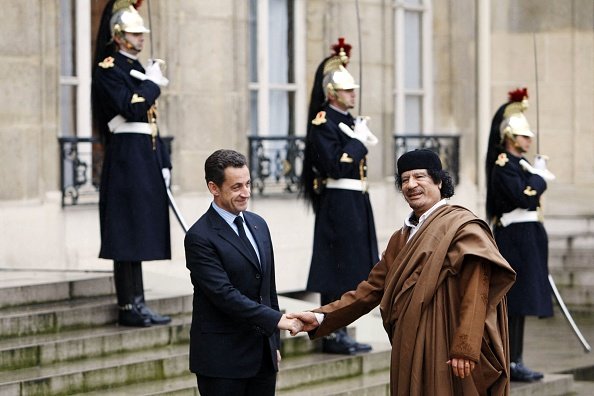
Former French President Nicolas Sarkozy is currently on trial. facing serious allegations that he accepted up to €50 million from Libya’s former leader. Muammar Gaddafi. to fund his 2007 presidential campaign.
Background of the Allegations Former French President
The accusations date back to 2011 when reports emerged suggesting that Sarkozy’s campaign had received substantial financial support from Gaddafi’s regime. These claims were initially brought to light by Saif al-Islam. Gaddafi’s son, who alleged that Libya had financed Sarkozy’s campaign. In 2013, French authorities launched a formal investigation into these allegations, leading to the current trial.
Details of the Alleged Pact
Prosecutors allege that Sarkozy and his associates engaged in a “corruption pact” with Gaddafi, wherein the Libyan leader provided illicit funds in exchange for political favors. The funds were allegedly funneled through intermediaries and delivered in cash-filled suitcases to Paris. These clandestine transactions are said to have significantly exceeded France’s legal campaign financing limits, raising serious concerns about the integrity of the electoral process.
Sarkozy’s Defense in Former French President
Sarkozy. who served as president from 2007 to 2012. has vehemently denied the allegations. dismissing them as “grotesque” and politically motivated. He contends that there is no concrete evidence to support the claims and argues that the charges are based on unreliable testimonies and forged documents. His defense team is expected to challenge the credibility of key witnesses and the authenticity of the purported evidence during the trial.
Legal Proceedings and Potential Consequences
The trial. which commenced on January 6, 2025, is scheduled to run until April 10, 2025. Sarkozy faces multiple charges. including passive corruption, illegal campaign financing. concealment of embezzlement of public funds. and criminal association. If convicted, he could face up to 10 years in prison and a fine of €375,000. In addition to Sarkozy. 12 other individuals. including former ministers and businessmen. are also on trial for their alleged involvement in the illicit financing scheme.
Implications for French Politics Former French President
This trial marks a significant moment in French political history. as it scrutinizes the conduct of a former head of state and raises questions about the influence of foreign money in domestic politics. The proceedings are being closely watched by the public and political analyst. as they may have far-reaching implications for the transparency and accountability of political campaigns in France. Moreover. the trial could impact Sarkozy’s legacy and the future of his political party. The Republicans
Previous Legal Challenges in Former French President
This is not the first time Sarkozy has faced legal challenges. In 2021. he was convicted of corruption and influence peddling in a separate case and was sentenced to three years in prison. with two years suspended. He has appealed that conviction. Additionally, in 2024, he was found guilty of illegal campaign financing related to his 2012 re-election bid, receiving a one-year prison sentence. which he is also appealing.
Public Reaction and Media Coverage Former French President
The trial has garnered extensive media attention, with numerous journalists covering the proceedings. Public opinion in France is divide. with some viewing the trial as a necessary step toward political transparency and others perceiving. it as a politically motivated attack against a prominent conservative figure. The outcome of the trial is likely to influence public trust in political institutions and the judicial system.
Conclusion
As the trial progresses, it will continue to shed light on the complex and often opaque world of political campaign financing. The allegations against Sarkozy underscore the importance of transparency and accountability in democratic processes. Regardless of the trial’s outcome, it serves as a reminder of the need for stringent regulations and oversight to prevent the undue influence of foreign entities in national politics.